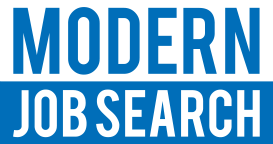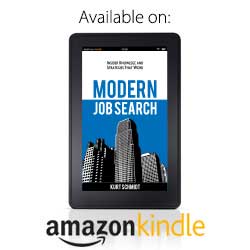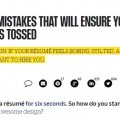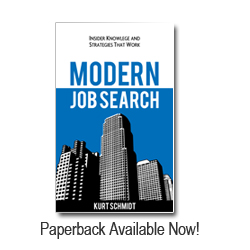
Everyday Career Advice: 5 Mission Critical Ways to Improve Job Interview Performance
By Kurt Schmidt In Blog, Everyday Career Advice On June 4, 2017
The mission for your interview is simple – In fact so simple that you can even tell your interviewers what you hope to accomplish while you’re there. You can actually say to them: “I’m here to figure out how I can help you achieve your goals.”
Number One: “Tell me what YOU want to do.” Figure out what they want to do in their own positions and how their goals relate to and depend on the open position. If they can’t articulate it, back out and ask about their departmental or team goals and develop your own conclusions about how you can help them achieve their goals. It is critical to see if you can get them talking about what they want to accomplish (not what you want to accomplish). It is what they want to accomplish that’s important and how you can support them. If the structure of the interview consists of them asking most of the questions, use the STAR-Q Method (Situation, Task, Action, Result – Question) to try to ask questions so you can relate your experiences to their needs and interests. The “Question” part is mine and it’s useful as a conversational redirect to get the interviewers talking about their needs. Good examples of STAR-Q questions are things like:
a. (After answering a question) How does what I described relate to your needs here?
b. (After answering a question) Have you tried something similar? Did it work?
c. (After answering a question) Do you have similar problems, goals, needs?
d. (After answering a question) Do you think a solution like that would apply here?
Number Two: “Here’s how I can help you do it.” Once you get examples of the interviewer’s goals, needs and challenges, you need to find ways to demonstrate and prove that you can help them achieve their goals, solve their problems and support their needs. The key word is “prove” – in that as they are revealing what they want to accomplish, you need to be able to cite examples of things you’ve done that are similar and how the results you achieved are applicable to the company’s needs. Key words to consider in regard to any and all experiences that you share are: Applicable, Relevant, Demonstrable, and Specific.
Number Three: The Importance of Pronouns: Why should you be so focused on them and their goals, needs and challenges? Ideally, you want them to leave the interview conversation with the idea that you can help them the most; that you are there to serve them. They need to see you as a “solution provider.” They need to perceive that you have a very high level of self-confidence, but not that you are self-interested. Consider that often the people who appear most confident and are inspiring leaders don’t talk or think in terms of the pronoun “I.” Instead, they inspire followers by talking and acting in terms of “we” (inclusive). Or, they project and use empathy to identify with the interviewers, i.e. “you, your, they, them, their.” Using these pronouns (we, us, you, yours, ours, etc.) instead of (I, me, mine, my) will demonstrate more maturity, self-confidence, strategic vision, social awareness and leadership potential.
Number Four: Consider the Panel (or other interviewers if it is not a “panel interview”): How are the panel members related? Do they agree on what the priorities of the position should be? How much do their “needs” overlap? Are there any conflicting goals among them? Are they unified in their overall vision? Can you ask them similar questions and get them talking among themselves and / or comparing each other’s needs and priorities? How can you demonstrate that you can help them all achieve their goals and solve their problems – balancing potentially varying priorities?
Number Five: Demonstrate Enthusiasm and Genuine Interest: Do this for the position itself, the team and company, and with every person who participates in the interviews. Don’t waiver on this; each interviewer needs to believe that if they really want to hire you, that it is realistic that you would join the team. In the end, you don’t have to join them if you don’t want to, or if the offer isn’t right. However during the interview, if you don’t make them believe they can hire you, they won’t even try. Companies are sensitive; they won’t reveal their interest in you if they believe that you aren’t really interested in them. They don’t want to be vulnerable and get their “feelings hurt” (think high school dating scene / teenage emotions).
A Successful Interview: Your interview will be successful if, after it’s done, all of the interviewers believe that you are truly there to help them and that you have the experience, skills, motivation and character to do so. This result has nothing to do with whether or not they can “afford” to hire you, what type of salary they would need to offer or anything else related to “what you might cost them,” (or what’s in it for you). The key for the interview is to get them interested in thinking about what it will take to get you to join them, not talking about it just yet. If they leave this interview convinced that you are the “solution” they are seeking, then they will open the conversation about the “price” and that will be to your advantage.
Everyone knows that the company will have to pay you to take the job. It’s the unspoken part of the interview and can remain that way until they reveal the seriousness of their interest. They will “invite” you to talk about the “what’s in it for you” aspects of the job if they are really interested (after the interviews are over). In fact, if the interviews are truly successful, they will attempt to “sell you” on the job (obviously within the parameters of their compensation and benefits structure for the position). Consider this: An offer is a sales pitch in that they are trying to convince you that what they have for you is better than something else (your current job, another job, etc.). If you can get them this interested, then when they start talking about a potential offer (first, before you do) it will represent a transfer in power to you. You want them to try to sell you on the job. Everything that you do in the interview should support this goal.
Once a company fixates on a specific candidate, they will make a solid effort to hire that candidate – to a degree (depending on backup candidates, etc.). The bottom line is that nobody likes settling for their second choice. Do everything right at this stage and you can become the “first choice.” Then, and only then, will you make it to the next stage – where your needs and interests become important.
Kurt Schmidt is the author of “Modern Job Search” and the President and Owner of Capto Systems, an executive search firm focused on supply chain and strategic sourcing jobs in manufacturing and energy. He’s also an aspiring photographer and traveler. If you’re really looking for a job, you need his book!
Photo: Superflo Porsche 911/993 Race Car, Savannah, GA 2013








